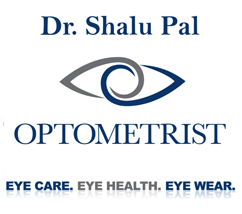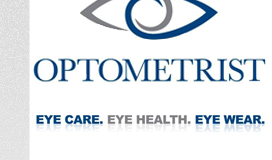Nutritional Supplements May Have Adverse Ocular Effects
Side effects ranging from dry eye to retinal hemorrhages and transient visual loss were found. A large proportion of North Americans use herbal medicines or nutritional supplements and many people taking these products are unaware of the adverse reactions they can cause. An Oregon Health & Science University researcher reviewed reported cases of ocular side effects associated with these products. His findings are published in the American Journal of Ophthalmology this month.
The researcher Frederick W. Fraunfelder MD assistant professor of ophthalmology in the OHSU School of Medicine and the OHSU Casey Eye Institute found side effects ranging from dry eye to retinal hemorrhages and transient visual loss. Most of the side effects were associated with higher doses and topical application. While none of the reported cases caused permanent damage many could have if the patient had not discontinued use of the product.
Herbal medicines and nutritional supplements are not regulated like prescribed or over-the-counter medications are. The World Health Organization (WHO) published guidelines on the use of herbal medicines in 2004 including recommendations on cultivating collecting classification quality control storage labeling and distribution. However there are no official standards governing the production of herbal medicines in North America and the potency and purity of these products vary widely.
Fraunfelder reviewed cases of adverse ocular side effects reported to the WHO the U.S. Food and Drug Administration and the U.S. National Registry of Drug-Induced Ocular Side Effects and reviewed world literature for reported instances of adverse ocular side effects caused by herbal medicines and nutritional supplements. Out of 323 reported cases he found eight products associated with clinically significant ocular side effects: ginkgo biloba Echinacea purpurea chamomile licorice canthaxanthine Datura niacin and vitamin A.
One of the best-selling herbal medicines in the United States and worldwide is ginkgo biloba which is used to treat tinnitus asthma and tonsillitis among other things. Fraunfelder found two cases of hemorrhaging in the anterior chamber of the eye as well as reports of retinal hemorrhages in patients taking this agent. Ginkgo biloba inhibits platelet aggregation and should be used with caution in patients taking aspirin because the effects could be amplified. Echinacea purpurea is used to treat colds coughs fevers urinary tract infections burns and influenza. Reports of eye irritation and conjunctivitis have been associated with its topical use.
Chamomile is used to treat eye disease as well as insomnia indigestion migraine headaches bronchitis fevers colds inflammation and burns. Chamomile tea is used by some topically in and around the eyes to treat styes and runny irritated eyes. Fraunfelder found reported cases of severe conjunctivitis related to chamomile’s topical use.
Licorice is used to treat upper respiratory tract infections ulcers appendicitis and constipation. Some Native Americans use licorice to treat inflammatory eye diseases. Fraunfelder found cases of transient vision loss after licorice ingestion similar to what one might see with an ocular migraine without headache. The side effects appear to be associated with large doses.
Canthaxanthine a carotenoid used in cosmetics as a food coloring and to produce an artificial suntan when taken orally causes deposits of the drug in the retina. The deposits appear to be absorbed over time but take years to disappear. Visual changes from this nutritional supplement are related to retinal abnormalities detected with visual field testing and electroretinography (a test of retinal function).
Jimson Weed is the most common member of the genus Datura. The dried leaves of this flower are used to treat eye inflammation as well as asthma bronchitis influenza and coughs. Fraunfelder found several instances of mydriasis a prolonged dilation of the pupil.
Niacin can cause some of the most severe ocular reactions of all the products reviewed. Its cholesterol-lowering effects have proved successful in treating cardiovascular and cerebrovascular disease. It also is used for treatment of schizophrenia diabetes arthritis hypertension sexual dysfunction and migraine headaches. A comprehensive review of ocular side effects from niacin indicates a possible association with decreased vision cystoid macular edema (CME) dry eyes discoloration of the eyelids eyelid edema and loss of eyebrows and eyelashes among others. The ocular side effects appear to be dose- related but some instances would require discontinuation of niacin therapy.
Vitamin A is used primarily as an oral dietary supplement for vitamin A deficiency and for treatment of acne. Fraunfelder found reports linking high doses of vitamin A to cases of intracranial hypertension. In the majority of cases this condition resolves when vitamin A is discontinued.
Many herbal medicines interact with prescription medicines and if the treating physician doesn’t know what a patient is taking it can be detrimental. For example a patient taking ginkgo biloba plus aspirin or a nonsteroidal anti-inflammatory medication such as ibuprofen may thin the blood too much leading to ocular hemorrhage or even intracranial hemorrhage. Physicians must remain vigilant in recognizing adverse ocular side effects and inquiring whether a patient is using alternative therapies. Better yet patients must be wise about self-administering herbal medication ensuring that a certified physician is monitoring their intake.





